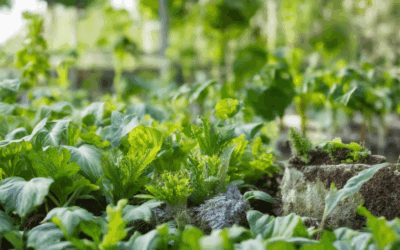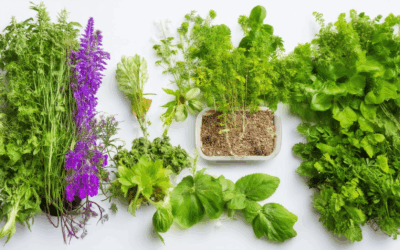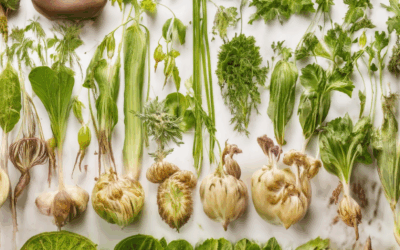Can You Find Reliable Non-GMO Seed Sources?
Gardening enthusiasts and food lovers often seek non-genetically modified organisms (non-GMO) seeds to grow their own produce, ensuring health and environmental safety. However, navigating the market for reliable non-GMO seed sources can feel overwhelming. Whether you’re new to gardening or looking to enhance your current setup, understanding where to find these seeds and what to look for is crucial. This guide explores essential tips, certifications, and options for sourcing non-GMO seeds, helping you make informed decisions for your garden or kitchen.
From understanding the basics of non-GMO seeds to discovering reputable brands and learning about sustainable farming practices, this article delves into key considerations for finding trustworthy non-GMO seed sources. We’ll also discuss how to verify labels, the differences between heirloom and hybrid seeds, and the importance of supporting local and organic growers. By the end of this exploration, you’ll be equipped with the knowledge needed to select seeds that align with your values and goals.
Can You Get Seeds That Are Not Genetically Modified?
Yes, you can easily obtain seeds that are not genetically modified. Non-GMO seeds are widely available and are a great choice for gardeners who prefer to grow crops that are free from genetic modification. Here’s how you can find and select non-GMO seeds:
Types of Non-GMO Seeds
- Heirloom Seeds: These are seeds that have been passed down through generations, often dating back to centuries ago. They are naturally non-GMO and are known for their hardiness and unique flavors.
- Open-Pollinated Seeds: These seeds are produced through natural pollination, meaning they don’t require artificial intervention. They are also non-GMO and can be saved for future growing seasons.
- Hybrid Seeds: While hybrid seeds may sometimes involve genetic modification, many hybrids are developed through traditional breeding methods. Always check the packaging to confirm if they are non-GMO.
- Treated Seeds: Some seeds are treated with chemicals to protect them during storage. These treatments do not alter their genetic makeup, so treated seeds can still be considered non-GMO.
Where to Buy Non-GMO Seeds
You can purchase non-GMO seeds from various reputable sources:
- Old Seed: We specialize in heirloom and non-GMO seeds, perfect for eco-conscious gardeners. Our seeds are carefully selected to ensure they are free from genetic modifications and are ideal for sustainable gardening practices.
- Other Reputable Retailers: Many seed companies offer non-GMO options, such as Gardeners Supply and Seeds of Change . These stores carry a variety of non-GMO seeds, including vegetables, flowers, and herbs.
- Local Seed Libraries: Check with local gardening clubs or community centers for seed swap events. Many communities have access to free or low-cost non-GMO seeds through these programs.
How to Save Non-GMO Seeds
Once you’ve purchased your non-GMO seeds, you can save them for future use by following these simple steps:
- Harvest Properly: Allow the seeds to fully mature on the plant before harvesting. Avoid cutting plants too early, as this can reduce germination rates.
- Clean the Seeds: After harvesting, clean the seeds by gently removing any chaff or debris. This helps prevent contamination and ensures better germination.
- Store Them Safely: Store seeds in an airtight container in a cool, dry place. Proper storage helps maintain their viability for future planting seasons.
By choosing non-GMO seeds, you contribute to sustainable gardening practices and enjoy the benefits of healthier, more flavorful crops. Explore our collection today and discover the joy of growing naturally!
Are Burpee Seeds Non-GMO?
Burpee seeds are widely recognized for their high-quality, non-GMO products. As a leading seed company, Burpee commits to providing seeds that are free from genetic modifications, catering to consumers who prioritize health, sustainability, and traditional gardening practices.
Non-GMO seeds are important for individuals concerned about genetic modification in their food supply. Burpee understands this demand and ensures that their seeds meet strict non-GMO standards, making them a popular choice among eco-conscious gardeners and farming enthusiasts.
Burpee offers a variety of heirloom and open-pollinated seeds, which are inherently non-GMO. These seeds are bred through natural methods, preserving biodiversity and historical plant varieties. By choosing Burpee, you support sustainable agriculture and contribute to the preservation of timeless gardening traditions.
For those seeking non-GMO options, Burpee is a trusted brand that aligns with your values. Their dedication to quality and tradition makes them a go-to source for seeds that are both nutritious and environmentally responsible.
Where Do Organic Farmers Get Their Seeds?
Organic farmers have several reliable sources for obtaining seeds:
- Certified Organic Seeds: Many organic farmers purchase seeds from suppliers who are fully certified to produce organic seeds. These seeds meet strict organic standards, ensuring they are free from synthetic chemicals and genetically modified organisms.
- Reputable Seed Suppliers: There are specialized seed companies that cater specifically to organic farmers. Companies like Seed Sovereignty and Organic Seeds Canada are well-known for their high-quality organic seeds.
- Non-Certified but Suitable Seeds: Some suppliers offer seeds that are not certified organic but are still suitable for organic farming. These seeds may be conventionally sourced but can still be used effectively in organic systems.
- Seed Libraries and Swaps: Farmers often participate in seed libraries or swapping networks where they can exchange seeds with others in their community. This practice promotes biodiversity and reduces costs.
- On-Farm Production: Larger organic farms may produce their own seeds, ensuring they are adapted to their specific growing conditions and free from external contaminants.
Each method has its advantages, and the choice often depends on factors like cost, availability, and farm size. Farmers aiming for strict organic certification typically opt for certified organic seeds, while smaller operations might lean towards non-certified or locally sourced options.
How to Know if Seeds Are Non-GMO
To determine if seeds are non-GMO, consider the following steps:
- Certification Labels: Look for certifications such as the Non-GMO Project Verified or USDA Organic Seal. These programs ensure that the seeds meet rigorous non-GMO standards.
- Seed Characteristics: Examine the seed packet for details about the variety and origin. Heirloom, open-pollinated, and traditionally grown seeds are often non-GMO.
- Sourcing: Purchase seeds from local farmers, small-scale producers, or reputable brands that prioritize non-GMO practices.
- Direct Inquiry: Ask the seed supplier or retailer about the seed’s history and production process to confirm it has not been genetically modified.
- Testing: While less common, professional testing services can verify the seeds’ non-GMO status if required.
By combining certification checks, understanding seed types, and verifying with trusted sources, you can confidently identify non-GMO seeds.
Does “Heirloom” Mean Non-GMO?
An heirloom plant is traditionally a variety that has been passed down through generations, often valued for its unique characteristics and resilience. However, the term “heirloom” does not inherently indicate whether a plant is genetically modified organism (GMO) or not. While many heirlooms are open-pollinated and may not involve genetic modification, some could have been hybridized using techniques that do not introduce foreign DNA, making them non-GMO. Conversely, very few heirlooms are actually GMOs, as such modifications are uncommon in traditional breeding practices. Therefore, the GMO status of an heirloom depends on its specific history and breeding methods, not simply the term itself.
Are American Seeds Non-GMO?
In the United States, most seeds available for planting are non-GMO. Genetic Modification (GMO) refers to the intentional alteration of an organism’s genetic material through laboratory techniques. While there are strict regulations in place for labeling genetically modified organisms, many seeds remain non-GMO due to traditional breeding methods.
The U.S. Food and Drug Administration (FDA) requires labeling of foods that contain ingredients derived from genetically modified organisms. However, seeds themselves are typically not genetically modified unless specifically indicated. Most seeds available in the market are bred through conventional methods, which do not involve genetic engineering.
For individuals seeking non-GMO seeds, it’s essential to check product labels and certifications. Many seed companies offer non-GMO options, often labeled as such. Additionally, some seeds may be treated with chemicals or undergo processing, so it’s always advisable to review specific product information before purchase.
Overall, while the majority of American seeds are non-GMO, it’s always good practice to verify the specifics of each product to meet personal preferences or dietary needs.








0 Comments